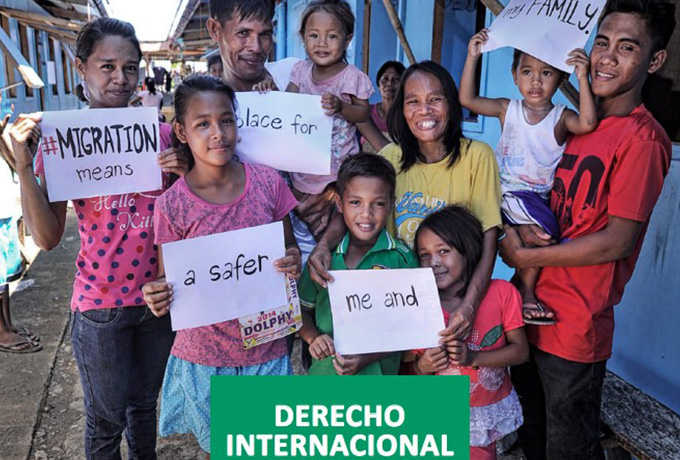Freedom of movement (right to):
Within the context of free movement agreements, the freedom of movement refers to the right of entry into and residence in another State that is a party to the agreement.
Feminization of migration:
The changing nature of women’s migration, reflecting the fact that more women migrate independently rather than as members of a household or as dependents. Furthermore, the profile of migrant women is changing, they are usually younger, single or heads of household, and mostly migrant workers.
Gender perspective:
The gender perspective or gender approach is an analysis that looks at the impact of gender on people's opportunities, social roles and interactions. Therein, the existence of inequalities between different genders is recognized, resulting from the cultural assignment of symbols, values and practices regarding bodily sexual differences (real or perceived). These inequalities are related to asymmetric power structures that place men and the masculine in a privileged position, and women and the feminine in a position of subordination.
Gender mainstreaming:
A strategy to assess the implications of gender in all interventions, including policies, programmes or legislation, ensuring that gender concerns and experiences are comprehensively considered in the design, formulation, implementation, analysis and monitoring of interventions.
Gender:
The socially constructed roles, behaviours, activities and attributes considered appropriate for individuals according to the sex assigned to them at birth.
Irregular migration:
Movement of persons that takes place outside the laws, regulations, or international agreements governing the entry into or exit from the State of origin, transit or destination.
IOM/IPL Migrant Integration Index:
: The Index is based on a multi-dimensional understanding of integration looking at the psychological, navigational, economic, social, linguistic, and political knowledge and capacities of migrants to establish themselves in their new communities.
Integration::
The two-way process of mutual adaptation between migrants and the societies in which they live, whereby migrants are incorporated into the social, economic, cultural and political life of the receiving community. It entails a set of joint responsibilities for migrants and communities and incorporates other related notions such as social inclusion and social cohesion. Reintegration is defined as the process allowing persons to reestablish economic, social, and psychosocial bonds, necessary to fend for themselves and preserve their livelihoods, dignity and inclusion in citizen life.
Immigration:
From the perspective of the country of arrival, the act of moving into a country other than one’s country of nationality or usual residence, so that the country of destination effectively becomes his or her new country of usual residence.
Multiculturalism:
A model of integration policies that welcomes the preservation, expression and sometimes even the celebration of cultural diversity. This approach encourages migrants to become full members of society while retaining their cultural identities. It combines the recognition of varied backgrounds, traditions and ways of seeing the world with certain universalist values, such as the rule of law or gender equality, that override cultural differences and guarantee the same rights for all. The integration relationship is then best captured in the image of a mosaic, enabling minority ethnic groupings to live side by side with the majority constituency.



